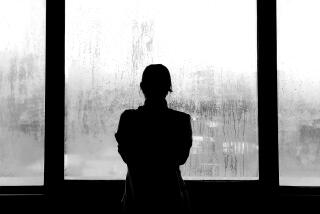BREA : Program Offers the Widowed a Lifeline
- Share via
Bonita Ellis married her husband, Roy, when they were both 17. When Roy died in 1989, Ellis, now 67, said her life almost ended too.
Lorraine Missanelli is 65, living alone since her husband, Frank, died in 1988. She’s still taking her life one day at a time.
Jorge Llorente, 86, lost his 88-year-old wife, Mera, in a car accident early this year. He has learned to accept her death, but the pain and the grief linger.
All three have learned to cope with their grief and rebuild their lives thanks to Widowed Persons Service, a nationwide outreach program sponsored by the American Assn. of Retired Persons.
Ellis, who coordinates the program for the cities of Brea and La Habra, said the program has served as a lifeline for widows and widowers, who otherwise would have had difficulty coping with their grief alone.
“A person who has not dealt with a death of a spouse will never understand the depth of the pain and the grief,” Ellis said. “That’s what makes us unique. Each one of us has lost a husband or a wife.
“We’re not professional counselors. We deal with feelings. We just provide a shoulder to cry on.”
The American Assn. of Retired Persons established the program in 1973, after studies which showed that grieving people are best helped by others who have had a similar experience and have successfully rebuilt their lives.
Ellis said the program has been operating from the Brea Seniors Center for the last seven years. It is run by trained volunteers, who have been widowed at least 18 months. It offers group sessions and one-on-one consultations.
Ellis said the program needs more volunteers. Training sessions will be held from 6:30 to 9:30 p.m. on Oct. 7 and 14, and Saturdays from 9 a.m. to noon, she said.
Ellis said she was devastated when her husband of 41 years, a former deputy with the Los Angeles County Sheriff’s Department, died of a congenital heart disease three years ago.
Although she had three adult children, she could not turn to them.
“They were dealing with their own grief of a father. I was grieving for a mate--I felt so alone,” she said.
Having stayed home through most of her marriage, Ellis said she felt lost.
“One day, the feelings burst through--the pain and the shock--and I thought I lost control. I called for help,” she said.
She joined a grieving widows program of a local church, became a volunteer and was then asked to coordinate the Widowed Persons Service program in Brea.
Missanelli, a volunteer for the past two years, said nights have been the hardest.
“It’s very difficult. That’s the time you were mostly together, and now you’re alone. It’s hard to accept at first. So I always tell couples: ‘Enjoy each other while you can. You never know how long you’ll be together,’ ” Missanelli said.
Llorente still can’t discuss his wife’s death without crying. “It’s been terrible,” he said. “We were married 52 years. Nothing interests me in life now. I would have preferred to have been with her.”
He has some more practical concerns, however.
“I don’t know anything--I don’t know how to cook--my wife did everything,” said Llorente, who has no children.
Ellis said many elderly widows and widowers are worried about who will care for them, especially if they become ill. Others who are younger worry about finances or raising children alone.
More to Read
Sign up for Essential California
The most important California stories and recommendations in your inbox every morning.
You may occasionally receive promotional content from the Los Angeles Times.













